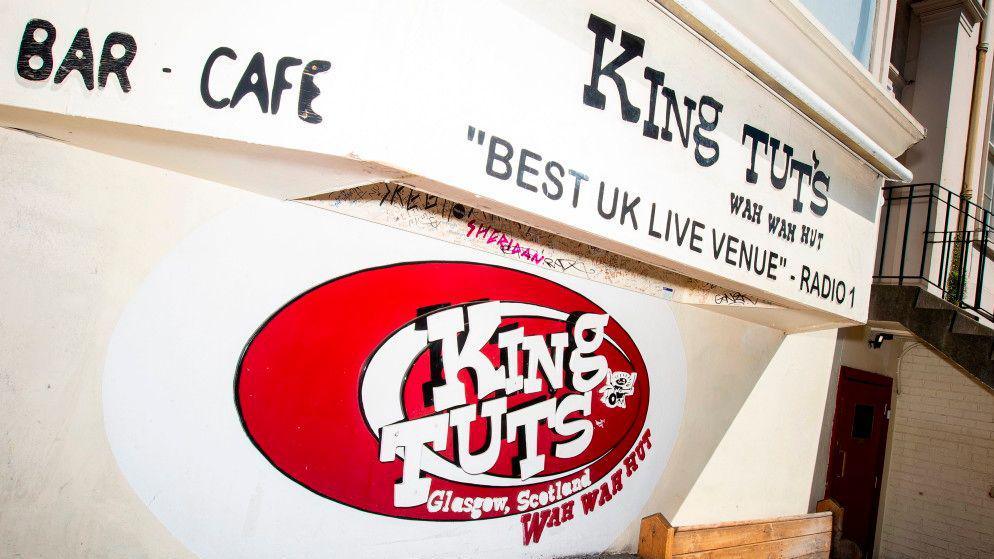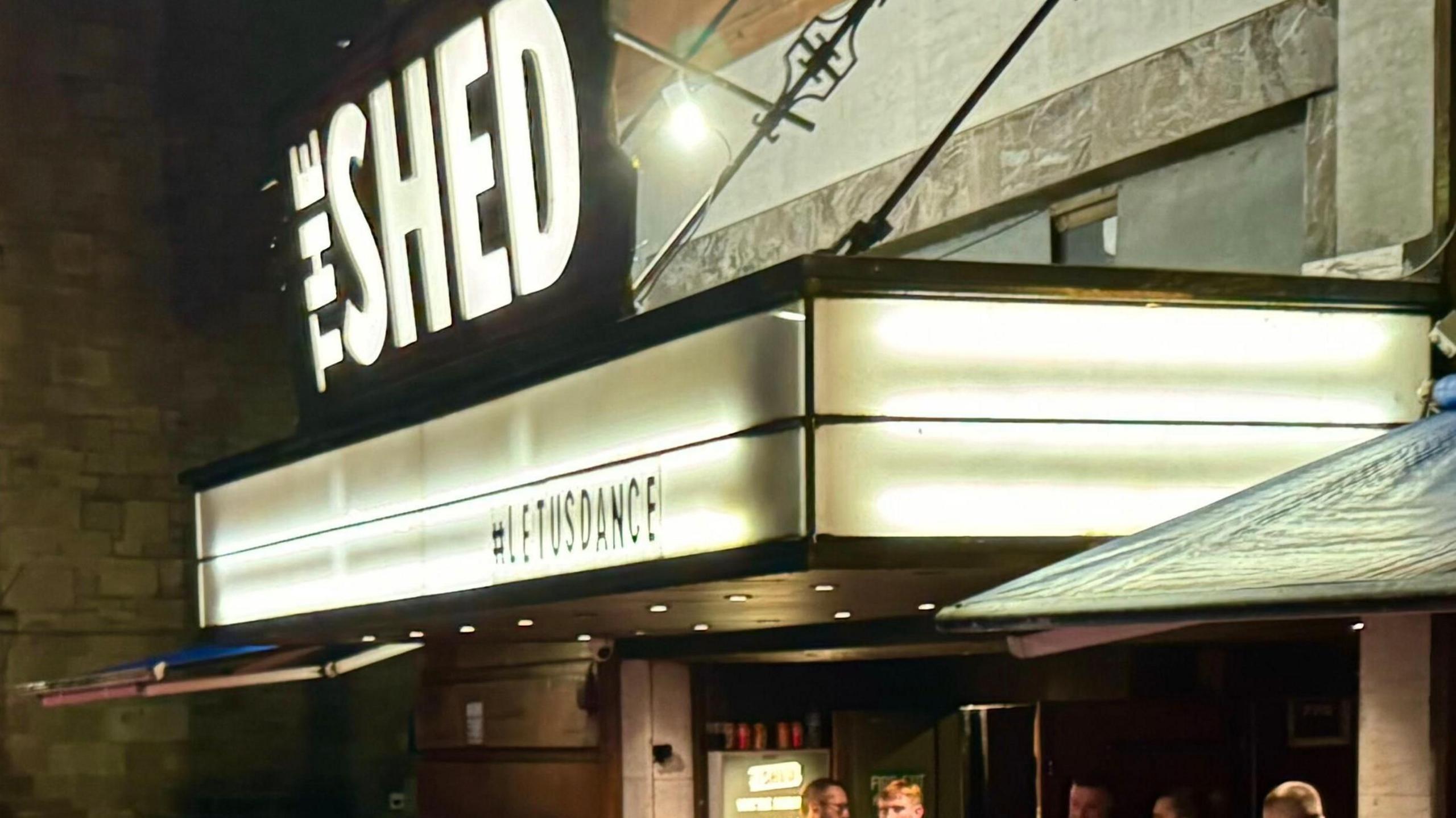Planning changes could harm pubs and clubs, claim industry bodies

King Tut's Wah Wah Hut is one of the venues that could be affected
- Published
Proposals to change planning permission laws in Scotland could unintentionally harm the country's nightlife sector, industry figures have claimed.
The Scottish government is currently carrying out a consultation regarding simplifying permitted development rights to encourage new housing to be built in town centres.
However, figures including DF Concerts promoter Geoff Ellis and Mike Grieve, the boss of famous Glasgow venue the Sub Club, have warned the changes could place pubs and clubs under further financial strain by requiring them to undergo expensive sound-proofing.
Last year the Scottish government declared a national housing emergency, with councils struggling to meet demand.
Permitted development rights are a form of planning permission granted through legislation, meaning specified types of development can be carried out without the need for planning applications to be submitted and approved.
The legislation does not usually cover new homes - but under the changes being considered, the upper floors of buildings in city centres could be converted to homes without planning permission being fully sought.
Consultation papers, external say this would help encourage town centre living and so-called "20-minute neighbourhoods", with more people living in the heart of cities like Glasgow and having the majority of what they need within 20 minutes of their home.
Mr Ellis, the head of DF Concerts, who organise the country's biggest music festival TRNSMT, believes such a move would have repercussions for his industry - particularly smaller venues.
He said the the likes of King Tut's Wah Wah Hut on St Vincent Street in Glasgow - owned by DF - could find more and more homes nearby, creating greater potential for noise complaints and soundproofing demands - which would fall on the venue owner to pay for.
He said: "Grassroots venues and pubs are where artists find their voices, and their Scottish fans. If these changes go ahead without safeguards, we risk losing the deep-rooted foundations that makes Scottish music thrive."
Grassroots music venues 'struggling'
The proposals come as Scotland's night-time economy continues to try and recover from financial difficulties caused by lost revenue due to the Covid pandemic.
Campaigning organisation the Music Venue Trust reported that in 2023, 125 grassroots venues in the UK either shut down completely or ceased live music.
A further 25 grassroots venues stopped trading the following year.
Mike Grieves, the managing director of Sub Club and head of the Night Time Industries Association said many venues would go bust if forced to unexpectedly soundproof.
He added: These proposed changes add another unnecessary challenge for venues and pubs in Scotland, most of which wouldn't survive the financial burden of trying to completely soundproof their premises, even if that was possible.
"This further threat posed by removing the opportunity to make representations to planning committee decisions is truly existential."
Other trade bodies, such as UK Hospitality Scotland, have also expressed concern over the possible changes.
The consultation is due to close next week.
- Published6 August

- Published16 September 2024
